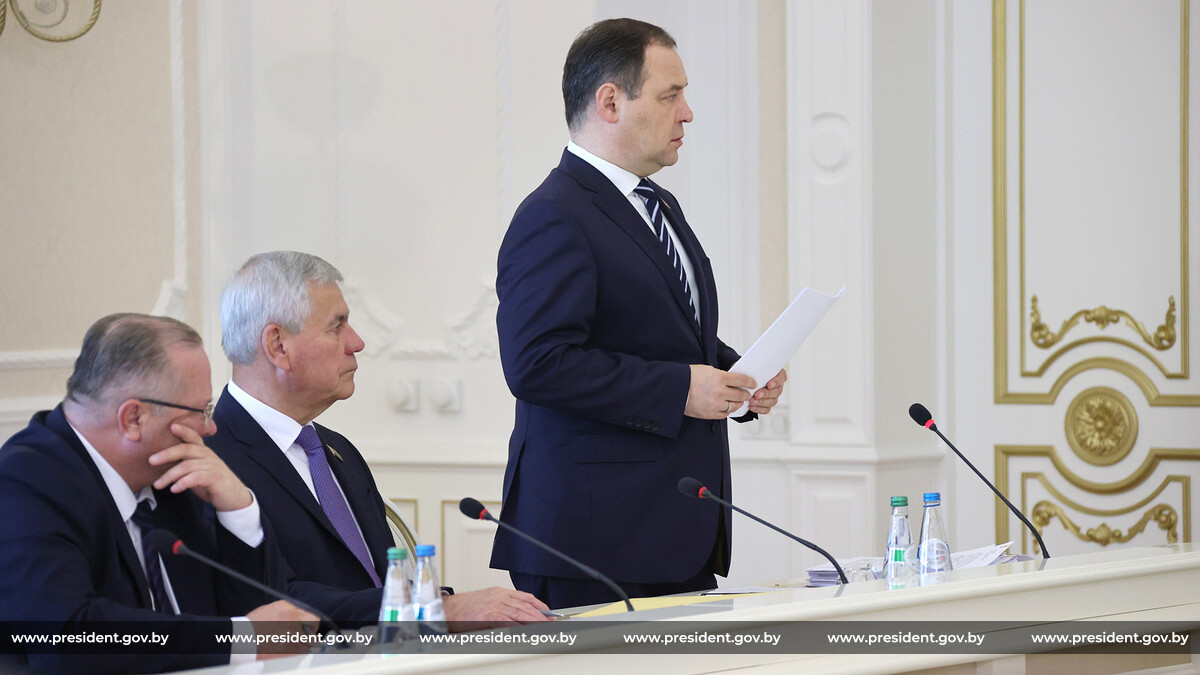Lukashenka criticises Prime Minister Halouchanka as the government stimulates economic growth
 The situation has not changed
The situation has not changed

The government is stimulating the economy with public sector investments and pay rises. Lukashenka is concerned about the economy and Prime Minister Halouchanka’s ratings. Regime enforcers continue to repress and depoliticise supporters of change.
Lukashenka criticises Prime Minister Halouchanka and suggests that he resign at the end of the year. The head of state is probably not satisfied with the prime minister’s ratings and popularity following the restoration of economic growth in the face of western sanctions.
Standards of living are rising, and average salaries have increased by 18% in the last 12 months.
Officials postponed the adoption of legislative changes regarding restrictions on entrepreneurs due to unpopularity and the risk of protest activity as the restrictions would force a significant number of entrepreneurs to close their businesses. Nevertheless, gradual restriction of entrepreneurial initiative continues, with a sharp reduction in business in some areas, such as owners of agricultural estates and artisans.
Security forces continue expropriation from private businesses. The State Control Committee fined a commercial organisation BYN 1 million for violations of price controls.
The regime intends to revise its approach to private business. Prosecutor General Shved discussed a tax amnesty, however, that is unlikely to have a positive impact in the short to medium term due to a lack of trust in the state by entrepreneurs. Meanwhile, tax officials continue to persecute companies and individual entrepreneurs, undermining businesses.
Officials are expanding health care price controls, introducing controls for all types of dental services.
Pension reform has no support form society, and private pension plans are unpopular. Low support for pension reform may be a consequence of insufficient efforts to promote the reforms on the part of the government, and lack of trust in state institutions.
Security forces continue to impose high costs for participation in social and political life. Eduard Babaryka was sentenced to 8 years in prison and may be detained longer than the law allows.
The ruling class will maintain a contradictory stance towards private businesses, yet they will predominantly lean towards diminishing the presence of small entrepreneurs.
Subscribe to our newsletter




Situation in Belarus
Constitutional referendum: main consequences


 Video
Video
How to count the political prisoners: are the new criteria needed?


 Video
Video
Paternalism In Decline, Belarusian Euroscepticism, And The Influence Of Russia


 Video
Video












